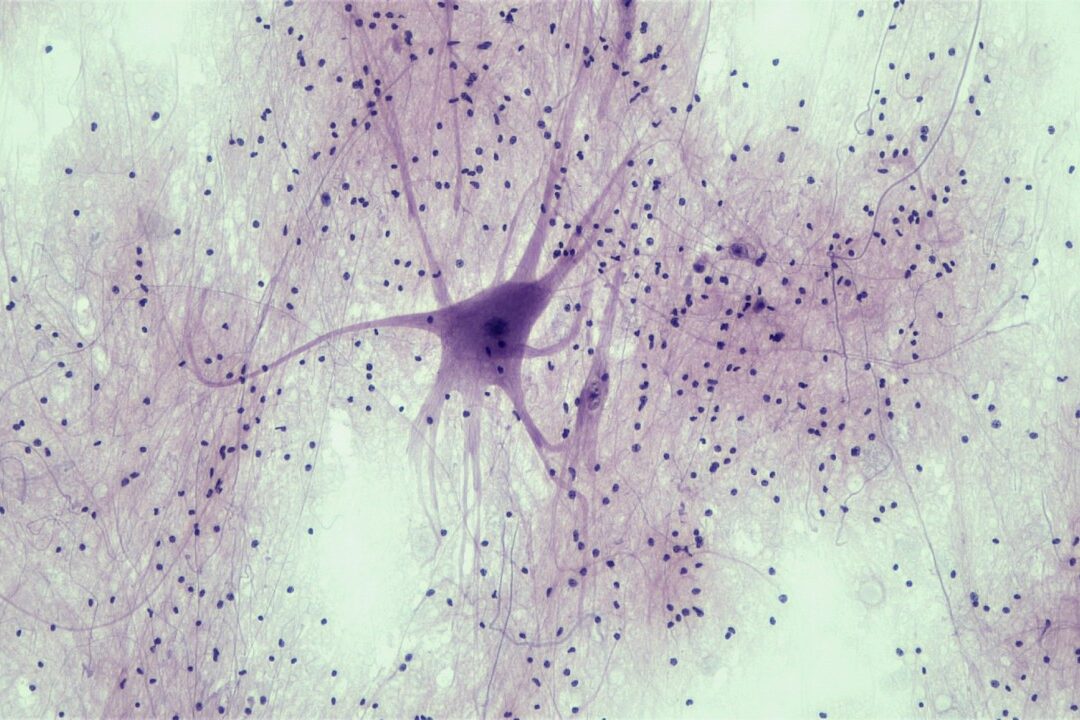The widest range of industry-leading Parkinson’s disease models
With more rodent and NHP models than anyone else in our field, Atuka is unsurpassed in being able to provide the best-tailored preclinical program to evaluate any potential therapeutic.
WHITE PAPER

Optimizing Preclinical Studies for Parkinson’s Disease Therapeutics
Strategies to optimize preclinical study design for therapeutic development and reduce translational risk.
Parkinson’s disease is a neurodegenerative disorder that progresses gradually, predominantly affecting nervous system functioning through the loss of dopaminergic neurons in the substantia nigra. Visible symptoms include tremors, slow or decreased movement (bradykinesia and hypokinesia, respectively), limb stiffness, and gait and balance impairments. Other symptoms include depression, apathy, hallucinations, sleep disorders, loss of smell, and numerous cognitive impairments.

+ Talk to us about designing the right approach for your therapeutic
Non-human primate models of Parkinson‘s disease
Atuka has conducted primate Parkinson’s disease studies of over 100 macaques within a single study, allowing us to perform studies that no other CRO can. These studies can evaluate efficacy, pharmacokinetics, and bioanalysis, in vivo brain imaging, surgical delivery of vectors/compounds to the brain, intrathecal delivery, functional observational batteries, tissue and blood collection, and physiological parameter monitoring.
Symptomatic
- MPTP-lesioned non-human primate (early or advanced disease model)
- Non-human primate model of dyskinesia
Side-effects (motor and non-motor)
- Chronic L-DOPA treated MPTP-lesioned macaque (advanced)
Disease modification
Other primate services
- Biodistribution (e.g., for AAV based gene therapies, ASOs)
- Non-GLP toxicity, safety and primate services
- Anxiety assessment using the Human Intruder Test (HIT)
Rodent models of Parkinson‘s disease
We offer numerous well-characterized rodent models of Parkinson’s disease and movement-related disorders, including models that go through a rapid degeneration process, allowing faster evaluation of test compounds.
Disease modification
Symptomatic
- AAV α-synuclein rodent
- Bilateral 6-OHDA-lesioned rodent
- Unilateral 6-OHDA-lesioned rodent models of dyskinesia
- Reserpine or haloperidol treated rat
Side-effects (motor and non-motor)
- High-dose L-DOPA-treated reserpine rat
- Chronic L-DOPA-treated 6-OHDA-lesion mouse or rat (full)
- De novo L-DOPA-treated 6-OHDA-lesion mouse or rat
Primate cognition models
Cognitive impairment and dementia are hallmarks of many diseases, such as Alzheimer’s disease and Parkinson’s disease. They cause a long-term and often gradual decrease in mental ability, negatively impacting quality of life for patients and those who care for them. There is currently no cure for cognitive impairment or dementia.
Atuka’s neuroscientists have deep expertise in this area, and we offer access to numerous non-human primates for the development of potentially life-altering neurotherapeutic medicines. Atuka provides numerous non-human primate models and extensive cognitive testing capabilities to assess the impact of your compound. We also have comprehensive behavioural, imaging (MRI/PET), pharmacokinetics, safety, blood chemistry, and postmortem capabilities.
Read more about our cognition models.
Normal young adult macaques
- To test cognitive effects of any compound (PAL, DMTS, OR)
Scopolamine-treated young adult macaques
- Models of cognitive deficits in Alzheimer’s disease (PAL, DMTS, OR)
Normal-aged macaques (20-25 years old)
- Model of cognitive deficits in mild cognitive impairment (MCI) and Alzheimer’s disease (PAL, DMTS, ID/ED, OR)
Chronic low-dose MPTP-treated macaques
- Model of cognitive deficits in Parkinson’s disease, ADHD, and schizophrenia (VDR, CPT, ID/ED, OR)
Cognitive tests
- Paired Associative Learning (PAL)
- Delayed Matching to Sample (DMTS)
- Five-choice Serial reaction Time (5-CSRT)
- Variable Delayed Response (VDR)
- Attentional Set Shifting/Intra-Extra Dimensional shift (ID/ED)
- Continuous Performance Task (CPT)
- Object Retrieval Task
TALK TO OUR EXPERTS
Advance your therapeutic program
Get the latest science from Atuka
Sign up to receive our quarterly newsletter featuring the latest developments in Parkinson’s disease research.